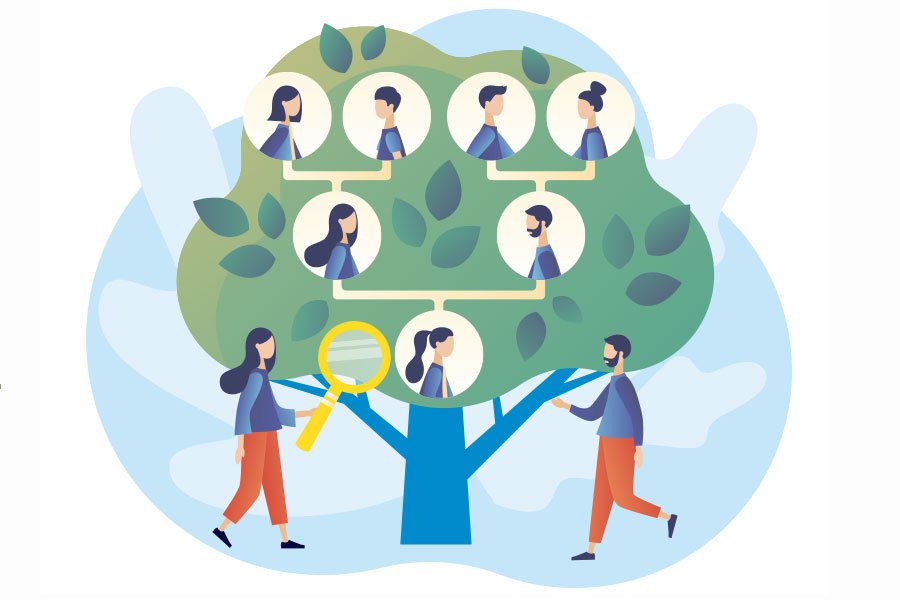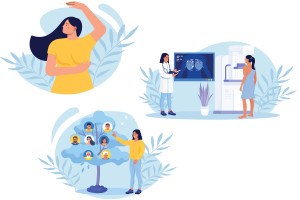Do You Know Your Family Tree?

The apple doesn’t always fall far from the tree. With about one in three people in the U.S. being diagnosed with cancer during their lifetimes, it’s likely that you already know of at least one family member who has had cancer. While only about 5 to 10 percent of all cancer cases are inherited, there are several types that can be hereditary. Having answers to a few questions about their case can help you assess how likely it is that you are at higher risk. If you aren’t very close, these conversations can be uncomfortable—but start with what you know.
• Which family member was diagnosed? Are you closely related? If your immediate family member, like a parent or a sibling, was diagnosed, that is a higher cause for concern than a more distant relative like a grandparent. If multiple family members from the same side of the family have been diagnosed, that also increases the likelihood of the cancer being hereditary.
• What kind of cancer is it? Certain cancers tend to appear in groups. For example, it is possible for a family to carry a genetic condition called hereditary breast and ovarian cancer syndrome (HBOC), which increases the likelihood of breast, ovarian, prostate, fallopian tube and other cancers. Lynch syndrome can make one more predisposed to colon, endometrial and ovarian cancers.
HBOC is often caused by a BRCA gene mutation. While BRCA gene mutations account for only 3 percent of breast cancer and 10 percent of ovarian cancer cases in the U.S. each year, having the mutation can greatly increase your risk of developing cancer.
“If multiple family members have been diagnosed with breast or ovarian cancers, you should ask your doctor if genetic testing may be warranted,” said Rodrigo Cerdá, M.D., MPH, senior vice president of Health Services and chief medical officer at Independence Blue Cross. “If you do test positive for a BRCA1 or BRCA2 gene mutation, make sure to tell your doctor so that you can create a plan for screenings and other preventative measures.”
• At what age were they diagnosed, and how rare is the cancer? If a relative under 30 was diagnosed with cancer, that can be a sign of an inherited cancer gene. Some cancers—like prostate cancer in older men or breast cancer in women above the age of 50—are very common. Multiple cases of a common cancer in a family do not necessarily mean a young, healthy person is at greater risk. On the other hand, the rarer the kind of cancer within a family, the more likely it is inherited.
• Did their lifestyle add to their risk? Some cancers are known to be caused by lifestyle factors—such as how smoking cigarettes can lead to lung cancer. A diet high in processed foods and red meats, heavy drinking and a lack of exercise may also increase risk. Certain occupations, like firefighters, may also be at higher risk due to workplace exposures. Keep these factors in mind when assessing your own genetic risk.
For more information about staying healthy, visit ibx.com.
This is a paid partnership between Independence Blue Cross and Philadelphia Magazine

